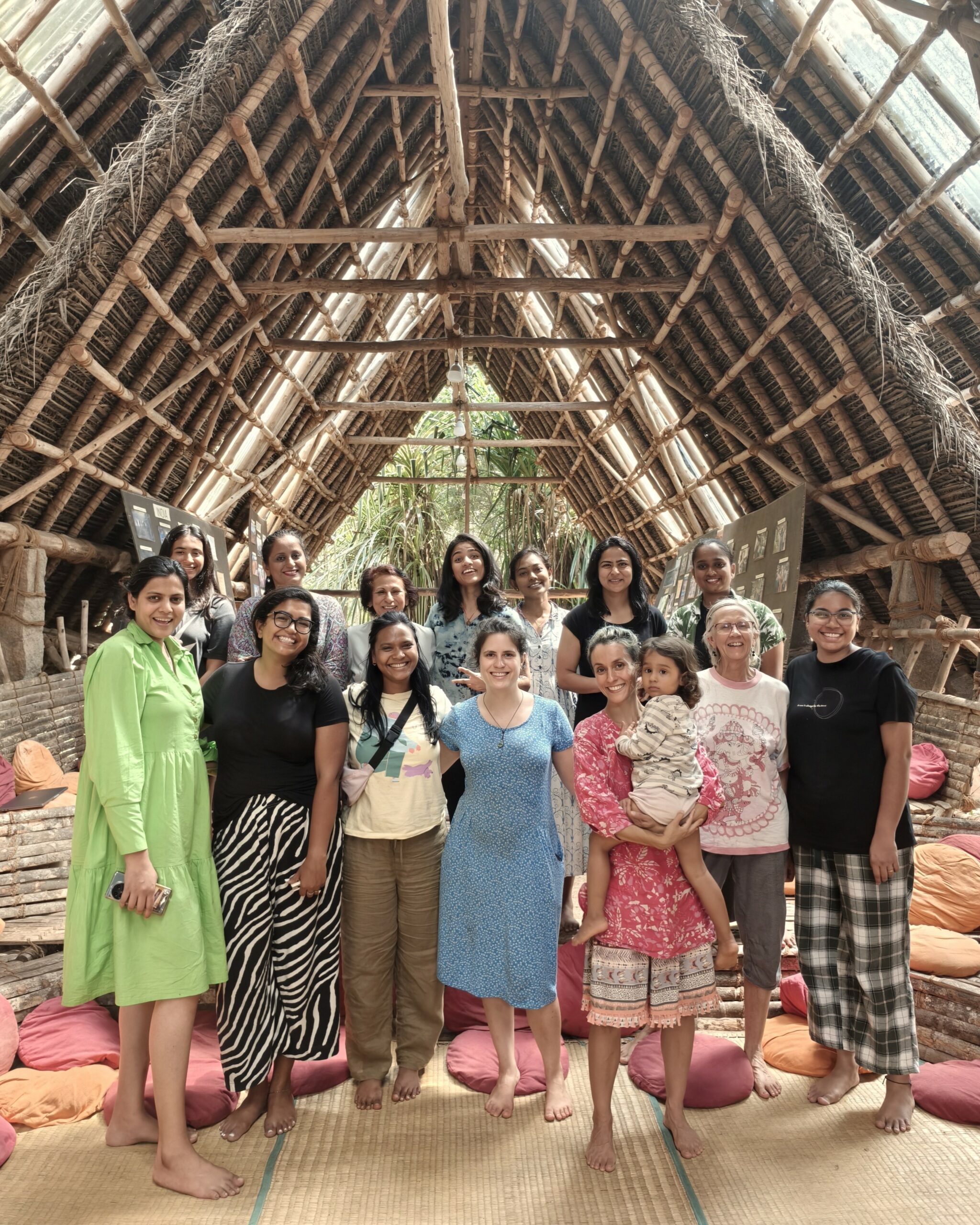How We Cook
We are a vegan community. Eating vegan food is a very effective way to protect natural resources. A vegan diet uses five times less land to produce food than an omnivore diet and 2.5 times less land than a vegetarian diet. Seventy percent of all agricultural land is used for feeding farmed animals (including dairy cows and egg-laying chickens). On average, a vegan diet indirectly reduces water used for food production by nearly 2271 L (600 gal) per day than an omnivore diet. If our aspiration is to protect natural resources, adjusting our diet seems to us like a logical and very effective first step. This means that we exclude all animal-based products from our meals. This includes items such as: meat, fish, dairy products (such as milk, butter, ghee, yogurt or curd), eggs, or honey. We also try to eat food that is minimally processed. This excludes items such as white flour, packaged juices, fried foods, refined sugars, preservatives, etc. We do however eat plenty of fresh, organic, nutritionally whole, and tasty foods. We cook with a variety of organic and seasonal fruits, vegetables, legumes, and grains.
Cleaning (ash vinegar etc.)
We will use an innovative method for washing our dishes.
We will utilize wood ash, which will be collected after cooking our meals on wood-burning rocket stoves, as dish detergent. Ash, high in alkali, is a powerful and natural surfactant. Some of the earliest soaps of humankind were made from ash and fat (oil).Using ash is another way of us extending the life cycle and utilizing our natural resources as efficiently as possible.
As a natural and biodegradable disinfectant we will use vinegar. Vinegar contains antimicrobial properties (from the acetic acid in vinegar). Unlike commercially produced disinfectants, the production of vinegar is less detrimental to the environment. Because vinegar is biodegradable we don’t have to worry about contaminating our waste water supply, which we use to irrigate our kitchen gardens.
Stoves/Oven
Rocket Stoves – Firewood
At Sadhana Forest Kenya we plan to cook on rocket stoves. We utilize rocket stoves at both Sadhana Forest India and Sadhana Forest Haiti. Rocket stoves are a very fuel efficient way of cooking. They use 60-80% less fuel than traditional stoves, saving many trees from being felled. Less fuel equals less deforestation. This highly efficient way of cooking also greatly reduces the amount of CO2 and black carbon emitted into the atmosphere.



